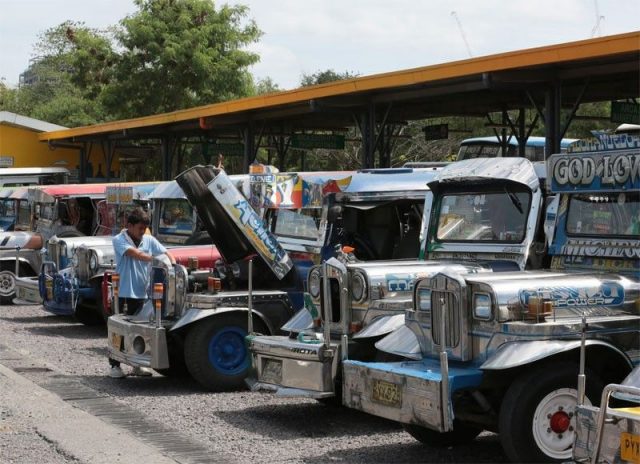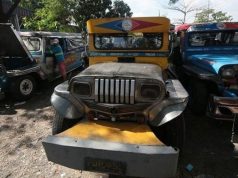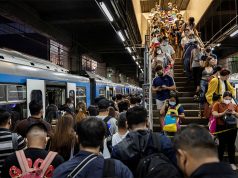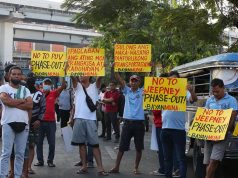
“Hindi po kami tutol sa modernisasyon, ngunit nananawagan po kami ng plano na hindi kami maiiwan.”
Transport advocate Reycel Hyacenth Nacario Bendaña, also a daughter of a jeepney driver, expressed this in a series of videos explaining the weeklong strike, on social media on March 4.
RELATED: Concerned Filipinos back EDSA Bus Carousel drivers’ clamor for release of salaries
In these explainer videos, Bendaña pointed out that the transport groups are opposing the total phase-out of their Public Utility Vehicles (PUVs) and not the modernization itself.
“Iba-iba man po ang grupong pinanggagalingan, iisa po ang tindig ng jeepney drivers natin. Hindi po kami tutol sa modernisasyon, ngunit nananawagan po kami ng plano na hindi kami maiiwan,” Bendaña said.
“Modernisasyon, hindi phase-out,” she added.
(1) Bakit nga ba may transport strike?
Hi mga marites!
Ako po si Hya, anak ng jeepney driver na 2-dekadang nagmamaneho at ipapaliwanag ko sainyo kung bakit may strike at ano ba ang “JUST TRANSITION”#NoToJeepneyPhaseout pic.twitter.com/tBa3i7ShyJ
— Reycel Hyacenth Nacario Bendaña (@hyabendana) March 4, 2023
Bendaña, also an organizer of Move As One Coalition, laid out the following concerns of PUV drivers about the modernization process:
- Single-operator drivers have to form transport cooperatives first. However, they have to shell out money for a hefty consolidation fee.
Bendaña said that the consolidation fee costs around a hefty P300,000.
- A Local Public Transport Route Plan (LPTRP) is also required from local government units (LGUs) for the jeepney drivers and other PUVs.
The route plan has been a requirement for the LGUs to prepare since 2017 under the Department of Interior and Local Government (DILG).
This was part of the overall PUV modernization program (PUVMP) that was launched in the same year.
Bendaña said that many local governments have yet to accomplish their route plans for the PUVs.
“So the million dollar question is, kung kayo po ay transport workers, san po tayo lulugar?” she said.
Transport groups comprising thousands of PUV drivers across the country launched a weeklong strike to protest the coming phase-out of traditional jeepneys.
READ: Commuters rally behind transport groups’ week-long strike
They pushed through with this movement even after the Land Transportation Franchising and Regulatory Board (LTFRB) extended the deadline for consolidation of single operators from June 30 to the end of December.
Amid the massive protest, the LTFRB still stood by its December 31 deadline for the traditional jeepney drivers.
READ: Faced by weeklong strike, LTFRB insists Dec. 31 deadline for jeepney consolidation stays
The nationwide movement started on Monday, March 6. It will run until Sunday, March 12.
RELATED: Why jeepney phase-out concerns teachers amid weeklong strike | Why non-transport groups back ‘#NoToJeepneyPhaseout’ protests
The just transition
Bendaña then explained the transport groups’ suggestions to carry out a “just transition” for the PUVMP.
She said that the government should provide a smooth “step-by-step” system that will help all traditional jeepney drivers to comply with the government’s deadline.
“Humihingi po kami ng step by step na suporta mula sa gobyerno from the very first requirement hanggang sa pinakahuling requirement po ng programa,” the advocate said.
“Bawasan o alisin po ang mga barriers o hadlang na nagpapahirap sa sector paa makasunod sa gobyerno. Because again, gusto po naming sumunod,” she added.
Bendaña also called on the government to shoulder at least 50% of the modernization costs.
She cited that most transport workers could not afford the units of modern fleets. Reports said that each unit costs up to P2.8 million.
RELATED: As Philippines scraps jeepneys, operators struggle with costs
Aside from financial concerns, Bendaña called for a social security plan for the elderly members of the transport sector.
“Ang panawagan po nila ay social security because they’re in informal labor. Wala po silang social security benefits,” she said.
Toward the end of her video, Bendaña stressed the importance of letting the affected PUV drivers have a voice in the PUVMP.
“Allow us, ang pinakaapektadong sektor na magco-design ng transition plan with the state. Handa po kaming tumulong,” she said.









